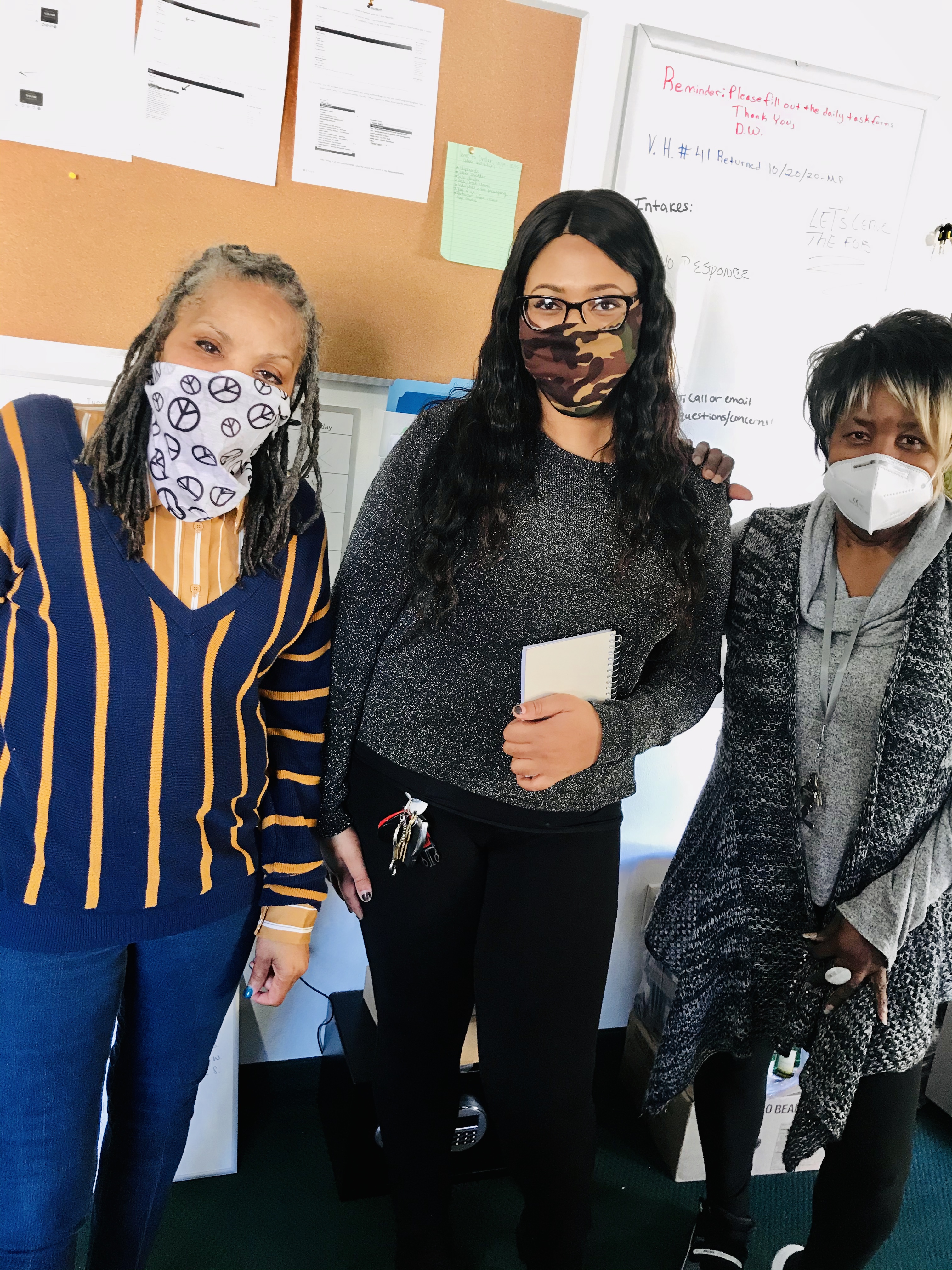In a first for Portland and Multnomah County, the Urban League of Portland has opened a motel-based shelter specifically designed for Black adults who are experiencing homelessness and facing increased risks from COVID-19.
The Jamii Program offers 43 units of temporary shelter for adults in a safe and socially distanced program designed to maximize success for Black people. Participants at the Jamii Program are matched with services designed for their needs —including a dedicated housing specialist who is well-versed in overcoming the obstacles that Black adults may experience in obtaining permanent housing. Program participants will follow an action plan of their own design to help them move from shelter to their own permanent housing, with dedicated support for their journey.
The program also provides participants with meals, transportation access, regular healthcare, access to funds for housing placement, and peer-delivered services for mental and behavioral health recovery in an environment that’s free from judgment or stigma. We are partnering with the Joint Office of Homeless Services — which is funded by the City of Portland and Multnomah County — leasing the rooms at the Palms so we are able to operate the Jamii Program and provide services.
“When the opportunity to open a 24-hour emergency shelter for the Black community experiencing homelessness became available through our partnership with the Joint Office, we got to work building a program that would serve our community,” said Julia Delgado, vice president of the Urban League of Portland. “We convened our community advisory committee, along with our staff with lived experience, and we built a program that is grounded in racial justice that will bring safety, comfort and housing success for people who are at extreme risk.”
Health, economic disparities put Black communities at risk of COVID-19 The Jamii Program opened amid an ongoing surge of COVID-19 cases in Multnomah County — and at a time when data locally and nationally continues to show that Black communities, in particular, face a disparately high burden of positive COVID-19 cases and even deaths.
Those disparities related to COVID-19 arise directly from social determinants of health that stem from patterns of historic and ongoing trauma for Black people — generations of slavery, decades of Jim Crow laws, and discrimination and systemic racism that linger to this day.
“COVID-19 is only the latest emergency facing our community. For generations, racism and discrimination have harmed the health and economic well-being of our Black neighbors. We're now seeing how devastating these systemic injustices can be to the Black community during a public health emergency,” said Multnomah County Chair Deborah Kafoury. “I’m committed to doing what it takes to limit COVID-19’s spread. But we can’t address one emergency while ignoring the other. The Jamii Program is an intentional and necessary effort to help us reckon with both at the same time.”
Black workers are less likely than white or Asian workers to be employed in industries that allow for remote work. Black workers are more likely to be employed in sectors that encounter the public, such as the transportation, hospitality and health. Black workers are three times more likely to commute by public transit, where social distancing is difficult. Black families are much more likely than white families to live in multigenerational households. All of these factors lead to greater risk of exposure, and less access to care when exposure occurs. In addition, Black patients who access medical care, even when controlling for health insurance and income, receive substandard treatment when compared to white patients.
When stay-at-home orders allowed many to stay safe, the same factors that increase risks from COVID-19 also prevented some people from staying home, due to an increased risk of housing instability and homelessness. Rents in the region are higher than the median Black-led household is able to afford without extreme rent burden. Beyond that, gentrification and displacement have hindered community resilience, as neighbors no longer have community nearby to support one another.
As a result, Black communities in Multnomah County also continue to experience homelessness at a far higher rate than their proportion of the County’s overall population.
“Unfortunately, Black community members experiencing homelessness are not always well-served by the existing system of care,” said Delgado. “But the Urban League understands the Black community because we are the Black community. Our work is ensuring that those who are impacted are leading the solutions.”
To learn about how to make a referral for an adult who is at increased risk of COVID19 and needing support services intended for Black adults, contact us!
